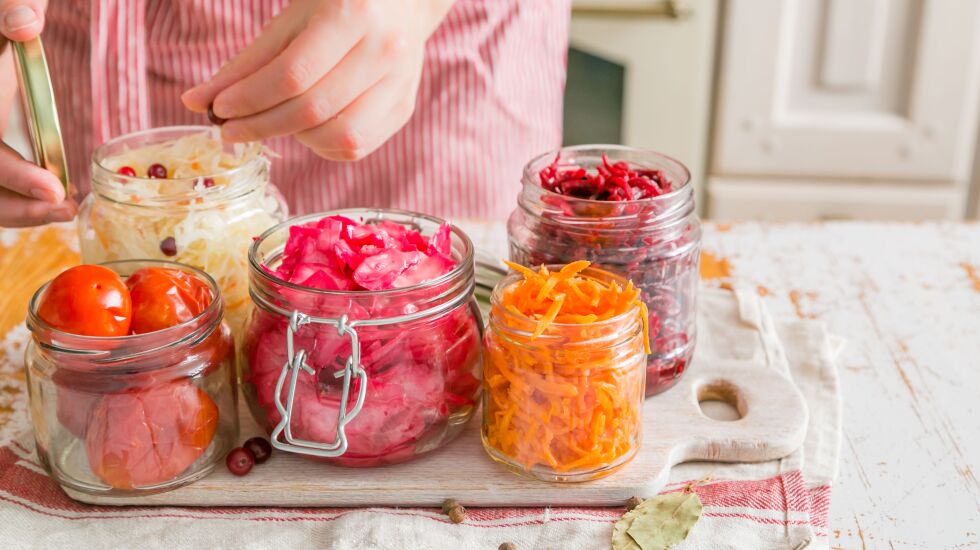
In the world of dietary supplements, vitamins and minerals are king. But just behind vitamins and minerals such as vitamin A, vitamin C, vitamin D, calcium, iron and magnesium exist a variety of popular supplements known as probiotics.
A 2012 National Health Interview Survey found that 4 million Americans were taking them monthly. According to more recent data, the global probiotic market size has grown considerably since then, reaching close to $60 billion nearly a decade later.
Despite the popularity of such products, “More rigorous studies are needed to help us understand which bacterial strains of probiotics are best for which disease state, optimal doses and the ideal way to deliver them,” says Dr. Jamie Bering, a gastroenterologist at Mayo Clinic in Arizona.
What are probiotics?
Probiotics are living microorganisms that are intended to have health benefits when consumed or applied to the body, according to the National Center for Complementary and Integrative Health.
They can be found in food products, dietary supplements and beauty products.
Many microorganisms also exist naturally in the body’s gut flora — an area where millions of both good and bad bacteria live.
“Probiotics are intended to confer health benefits by helping to influence and maintain the number of good bacteria found in the human gut,” Bering says.
Jen Messer, a nutrition consultant and registered dietitian, says the best food sources of probiotics “are primarily fermented foods” such as yogurt with live and active cultures, some cottage cheeses and kefir, the fermented milk drink that’s “rich in probiotics and can be a good source of beneficial bacteria.”
Probiotics also can be found in sauerkraut, kimchi, some versions of soybeans and traditional pickles. With these, “Look for unpasteurized varieties,” Messer says.
The unpasteurized, live-culture version of such foods is essential because it’s the live nature of probiotics that makes them beneficial. While many people think of living microorganisms and bacteria as unsavory or filled with germs, some bacteria, including the probiotic variety, are quite helpful.
What do probiotics do?
These good bacteria produce vitamins and work against the bad bacteria inside the gut to destroy disease-causing cells.
“Probiotics can also help with the movement of food through your digestive tract by affecting the nerves that control all types of movement within the gut,” says Dr. Lisa Young, an adjunct professor of nutrition at New York University who’s the author of “Finally Full, Finally Slim.”
Young says probiotics can also be helpful in “restoring good bacteria in your gut if the gut is unbalanced.”
Messer says many purported health benefits “continue to be investigated” but that other potential health benefits of probiotics include reduced inflammation, a boosted immune system, increased metabolism, a lessened appetite by increasing satiety or fullness and improved mental health.
“There is evidence to suggest that certain strains of probiotics may have the ability to produce compounds that can influence neurotransmitters and other signaling molecules involved in mood regulation,” she says.
This gut and brain communication is known as the gut-brain axis.
Who benefits most?
There’s reason to believe that some people benefit more from taking probiotics than others. Young says people taking antibiotics, those with mood disorders, people with diabetes or blood sugar concerns, cancer patients, babies, allergy sufferers and people with easily upset stomachs or ones dealing with constipation might especially benefit from taking a probiotic.
Messer says people experiencing a lot of stress might also benefit from getting more probiotics through diet or supplementation.
“Stress can impact the gut microbiome and probiotics may provide support,” she says.
It’s worth noting that some probiotic products are considered safer than others. The federal Food and Drug Administration doesn’t regulate dietary supplements the way it regulates food and drugs. But the way a probiotic is marketed affects how much oversight it gets.
Dietary supplements, for instance, do not have to get FDA approval to be marketed and sold — though they need approval to make certain health claims. Probiotics found in food and drugs have to meet stricter requirements and must be proven safe before being sold.
Because of this, if you’re considering taking a probiotic supplement, “It is recommended to consult a healthcare professional,” Messer says. “Your healthcare provider can also determine the appropriate strain and dose of probiotic for your specific needs as well as consider any potential interactions with medications or existing health conditions.”
Read more at usatoday.com







